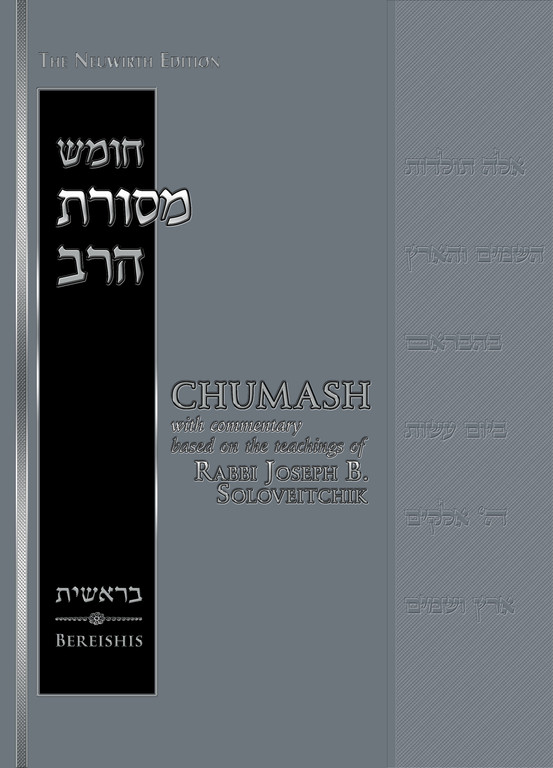The Kosher Bookworm: Yosef HaTzadik and the legacy of our Zeida Ya’akov
Last week’s parsha showcases the bond between Yosef Ha-Tzadik (Joseph the just one) and Yisrael Sava (Israel the elder) who is also our zeida (grandfather) Ya’akov.
This inspiring story of the special relationship of grandfather to grandchildren, prompted the great Yosef of our time, Rav Joseph B. Soloveitchik, zt”l, to write an eloquent and learned teaching reflecting upon the first relationship between grandfather and grandsons as recorded in the Bible, that being between Jacob and Ephraim and Menashe.
This teaching, as it appears in the Orthodox Union’s “Chumash Mesoret HaRav,” warrants your attention for its literary and religious meaning.
The Rav begins his commentary pondering why Jacob is referred to on several occasions as an elder. None of the other Patriarchs are referred to as such, and given the tumultuous history experienced by Jacob, being referenced as an elder is a rather curious title. To help explain this, I will quote some of the Rav’s teachings on this special, family-centered, teaching.
“In Talmudic and Midrashic literature, Jacob is often called Yisrael Sava, [“Old Israel”], and this term, too, is employed even in modern usage, to designate Jews who observe the old tradition. In what manner did Jacob distinguish himself that his name became the generic name for an entire people, and why is he in particular called the zaken (elder)?”
The Rav continues:
“Jacob was the first Patriarch to establish direct communication with his grandchildren. He was the first to make a historic pronouncement, thereby laying the foundation for the dialogue of the generations. He literally conquered time and space when he said to Joseph, ‘your two sons who were born to you in the land of Egypt until I came to you to the land of Egypt, they are mine. Ephraim and Manasseh shall be mine like Reuben and Simeon.’
“They received portions in the later division of the Holy Land, as did the sons of Israel. Though a second generation removed, and nurtured in an Egyptian environment, Jacob equated them with his own sons who had been reared close to him in the Holy Land.”
“Abraham and Isaac transmitted their spiritual heritage to their sons, but not to their grandsons. … Jacob, however, related directly to his grandchildren; he did not need an intermediary or an interpreter, his was a direct dialogue. Jacob the zaken leaped over the gulf of generations and transmitted the great mesorah (heritage) of Abraham directly to Ephraim and Menasseh.”
The Rav makes specific note of the following factors in this special relationship:
“Jacob was the first to impart special blessings to his grandchildren. … He blessed them even before he assembled his own sons for their blessings. … The halachic ruling [Yevamos 62b] that grandchildren have the same status as children is derived from Jacob’s declaration about Ephraim and Menasseh.”
The Rav concludes with the following:
“How appropriate, therefore, that our people be called Israel or Jacob, for it was he who created the community which ensures Jewish continuity. What preceded him were Patriarchal families, but Jacob laid the foundation for a people. Though the covenant was made initially with Abraham, it was not until Jacob that the secret of perpetuating the mesorah was discovered.”
This is a very powerful teaching for all of us to learn from and apply to our family relationships, both today, and in the many years to come. The bonding that the Rav teaches us from this family experience should serve as an apt example as to what family centered activity means to all society.
I look forward to upcoming volumes in this Chumash series from the teachings of Rav Soloveitchik from the OU and its esteemed director, Rabbi Menachem Genack.
With the start of the annual readings from the Book of Exodus this Shabbat, I am thrilled to note the publication of the next volume in the Living Torah Museum Chumash series on Shemos by its director, Rabbi Shaul Shimon Deutsch. This 170 page pictorial work brings to life the realities of the historical and inspiring events that took place in the historical settings of Egypt and Sinai both before, during and after the Exodus.
Utilizing the vast collection of archeological artifacts in this museum, Rabbi Deutsch brings a living testament, a physical proof to the actual events that helped to create our religious traditions and our devout faith in the living G-d.
This book is an excellent resource at the seder table, so remember to keep it away from the challah.
FOR FURTHER STUDY
“What’s Beyond The Bible Text?” is the title of a very challenging series of teachings on the weekly Torah readings. Written by Rabbi Dr. Stanley Wagner, of blessed memory, and Rabbi Israel Drazin, this work of high intellectual caliber brings to us relevant, contemporary themed issues that serve to make the Torah text germane to issues that we all face daily.
With this week’s reading, the authors pre-sent challenging questions to the text:
•Why did Pharaoh begin to mistreat the Jews?
•What is the significance of the three signs that G-d told Moses would prove that G-d sent him to Egypt? What is revelation?
•What does it mean when we speak of
G-d’s “name”?
There are more questions, making this volume a valuable learning tools for the Pesach holiday as well.
Columnist@TheJewishStar.com

 53.0°,
Overcast
53.0°,
Overcast 




